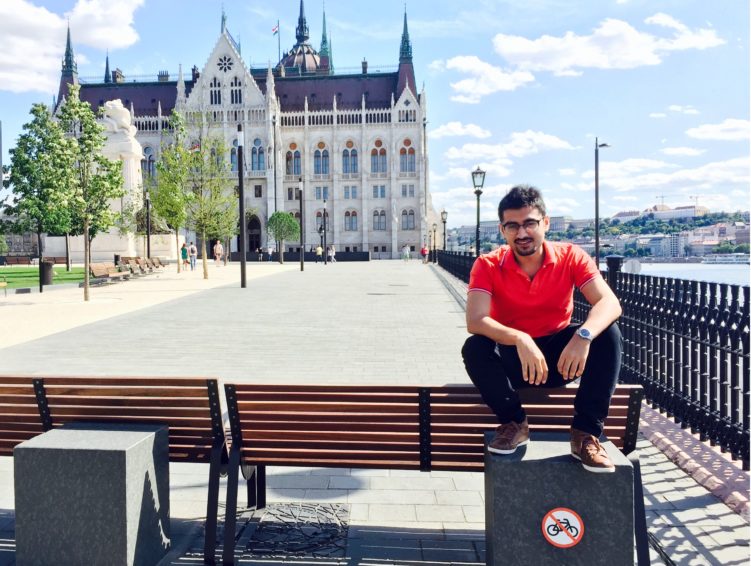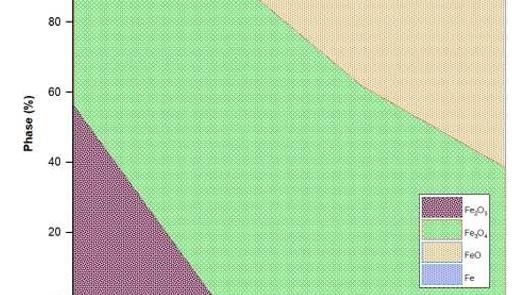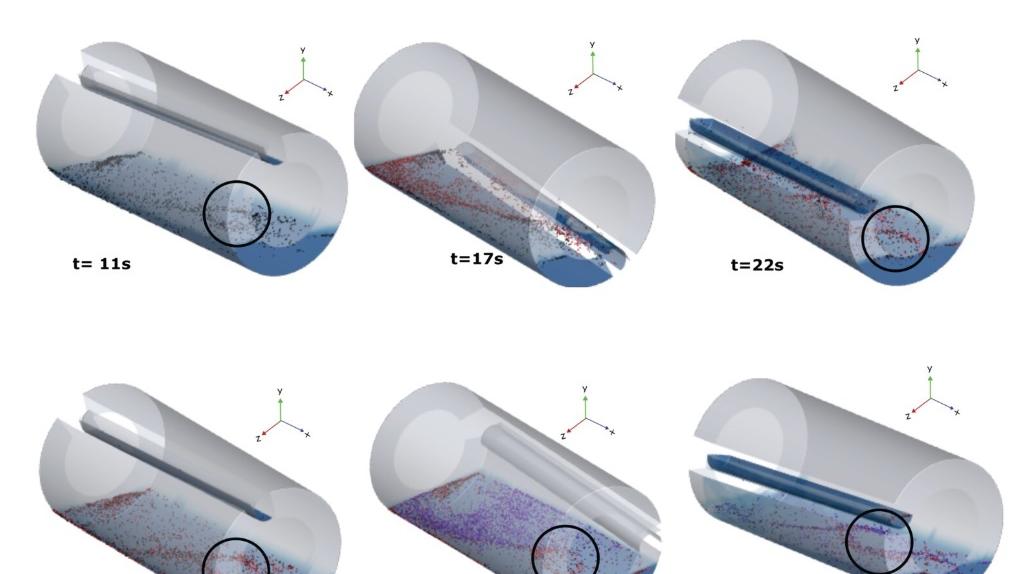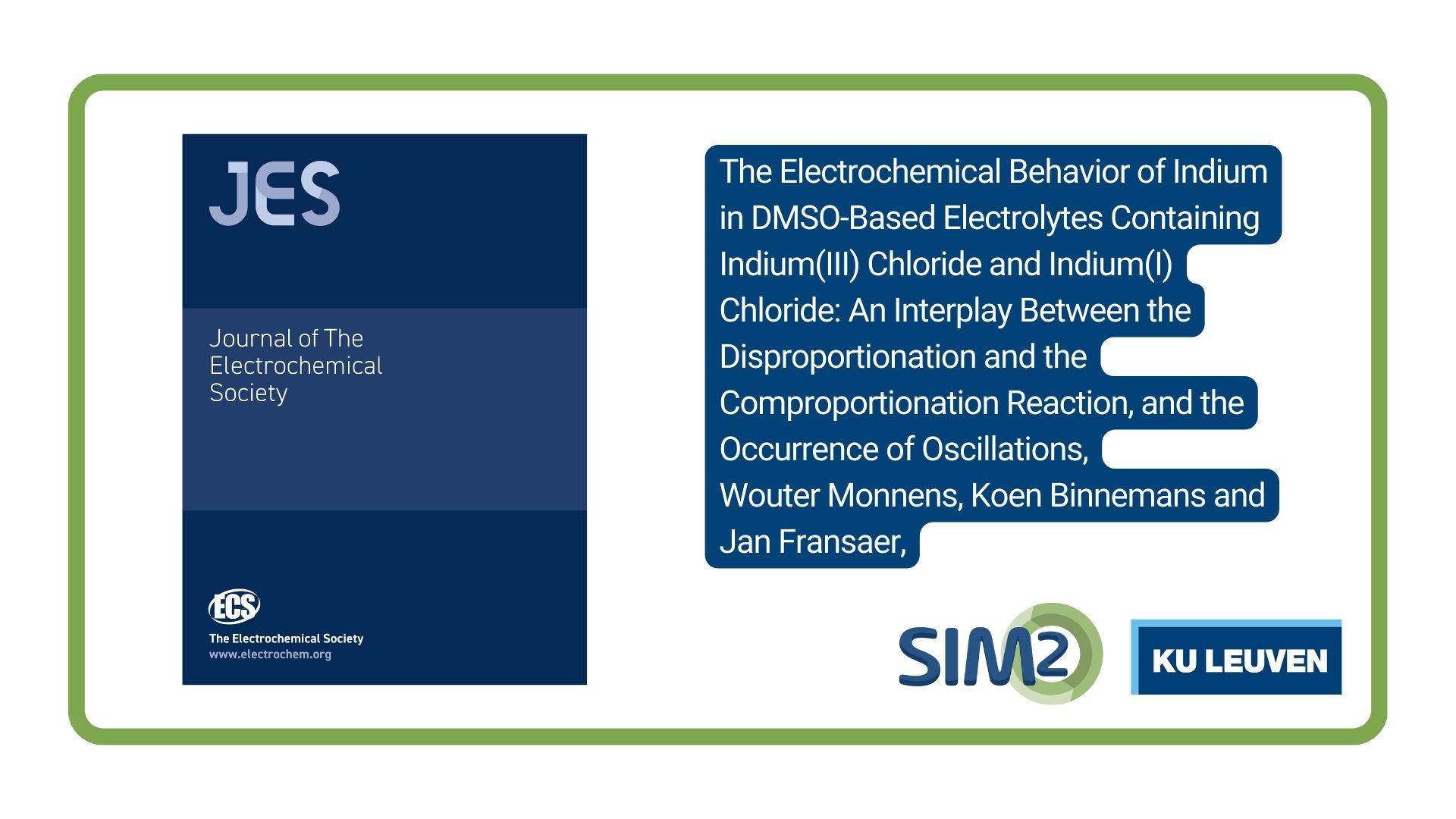Basit Ali is a new SIM² KU Leuven researcher working on the electrodeposition of Sm-Co magnetic alloys from ionic liquids (ILs). In this interview you can get to know more about this ETN DEMETER PhD researcher.
Why did you chose to come to work at KU Leuven?
There are several reasons why I chose KU Leuven and Belgium for my further education. Belgium is one of the most technically advanced and developed countries of the world. It ranks highly in education, quality of healthcare, standard of living, rule of law, job security and tolerance. Furthermore, KU Leuven is consistently ranked amongst the top universities in the world. Its multicultural education system and state-of-the-art facilities provide not only the sound research environment but also help improve the global harmony amongst the students. But I must say it was the DEMETER project, rather than the place which attracted me the most. My inherent interest in electrochemistry of rare earth metals was one of the main reasons to join DEMETER and come to Belgium. I knew about Prof. Koen Binnemans’s group and their research activities, so it didn’t take me much time to decide that it’s the most suitable place for me to carry on my PhD studies.
What are you working on?
Within the DEMETER project, I am working on the electrodeposition of SmCo magnetic alloys from ionic liquids (ILs). Mainly, the deposition is carried out from the electrolyte consisting of Sm salts and Co salts dissolved in an IL. Different kind of ionic liquids are being tested for this purpose. The initial electrochemical experiments consist of measurements of the cyclic voltammograms and to determine the electrochemical window of the electrolyte and to determine the potential for metal deposition. Titanium, aluminium or stainless steel cathode is used for the deposition experiments, while a sacrificial cobalt anode is used to avoid decomposition of the IL. The final obtained deposits of SmCo are investigated by SEM, EDX and XRD. Control of different parameters will be tested in future to control the composition of the deposit and to obtain smoother deposits.
What attracts you in the research project you are working on?
The novelty, technical challenges associated and the social impact of the project are some of the aspects which make it more attractive to work on. Moreover, the underlying sense of satisfaction and peace knowing that I am contributing in the betterment of humanity is also one of the most attractive things for me. This feeling energizes and encourages me to give my best and to tackle all the challenges being faced during the project.
On a more personal level, what helps you to overcome the difficulties of life?
Staying positive no matter the outcome and keep believing in myself helps me to dominate any problem I face in life. And I get this positive attitude from my belief and trust in the Almighty God. This is my belief that everything happens for good even if I can’t see it. So even in my hardest times, I always try to stay positive, keep struggling and believing in God’s plans because without any doubt, he is the best planner.
And sometimes when I feel super down, I call my mother and talk the whole problem out. Family is a blessing. Trust me, a mother’s lovely voice has magical healing properties.
What characteristic do you most admire in others?
Well, I have never thought about this before, but to give it a thought, I really admire people who are friendly, open minded, easily accessible, honest and have this courageous big smile on their faces no matter the situation.
How do you recharge?
Spending time with my friends, watching movies, listening music, light exercise are some of the quick ways I recharge myself. For hard recharges, I talk to my loved ones, and tend to take some holidays and travel to some other country because I love travelling and meeting new people and this really energizes me back to my “battery fully recharged” state.
Bio Basit Ali
 Basit Ali was born in 1991 in Rawalpindi, twin city with Islamabad, the capital of Pakistan. He obtained his Bachelor’s degree in Materials Engineering from prestigious Ghulam Ishaq Khan Institute of Engineering Sciences and Technology (GIKI), Pakistan. During his bachelor studies, he had the opportunity to do a short internship from Institut de Ciència de Materials de Barcelona (ICMAB), which is a part of Spanish National Research Council (CSIC) – the 3rd largest public institution dedicated to research in Europe. In 2015, he won the South Korean Government scholarship Award and did his Masters studies in Rare Metals Engineering from University of Science and Technology (UST), South Korea where he focused his studies on the REE recycling, gas oxide reduction and notably high temperature molten salt based electro-refining of indium metal from indium tin alloy scrap. In May 2017, he joined the Department of Materials Engineering at KU Leuven as Early Stage Researcher (ESR) in the H2020 MSCA project ‘European Training Network for the Design and Recycling of Rare-Earth Permanent Magnet Motors and Generators in Hybrid and Full Electric Vehicles’ (MSCA-ETN DEMETER) where he is working on the electrodeposition of SmCo magnetic coatings from ionic liquids. Within the DEMETER project, he is working under the supervision of Prof. Jan Fransaer and Prof. Koen Binnemans. Basit Ali is a simple, cheerful guy with lots of love to give to the world!
Basit Ali was born in 1991 in Rawalpindi, twin city with Islamabad, the capital of Pakistan. He obtained his Bachelor’s degree in Materials Engineering from prestigious Ghulam Ishaq Khan Institute of Engineering Sciences and Technology (GIKI), Pakistan. During his bachelor studies, he had the opportunity to do a short internship from Institut de Ciència de Materials de Barcelona (ICMAB), which is a part of Spanish National Research Council (CSIC) – the 3rd largest public institution dedicated to research in Europe. In 2015, he won the South Korean Government scholarship Award and did his Masters studies in Rare Metals Engineering from University of Science and Technology (UST), South Korea where he focused his studies on the REE recycling, gas oxide reduction and notably high temperature molten salt based electro-refining of indium metal from indium tin alloy scrap. In May 2017, he joined the Department of Materials Engineering at KU Leuven as Early Stage Researcher (ESR) in the H2020 MSCA project ‘European Training Network for the Design and Recycling of Rare-Earth Permanent Magnet Motors and Generators in Hybrid and Full Electric Vehicles’ (MSCA-ETN DEMETER) where he is working on the electrodeposition of SmCo magnetic coatings from ionic liquids. Within the DEMETER project, he is working under the supervision of Prof. Jan Fransaer and Prof. Koen Binnemans. Basit Ali is a simple, cheerful guy with lots of love to give to the world!
***
Want to know more about SIM² KU Leuven projects, papers, open positions etc.?
Follow us on our SIM² KU Leuven LinkedIn Page or subscribe to our monthly Newsletter (see bottom part of our homepage).





